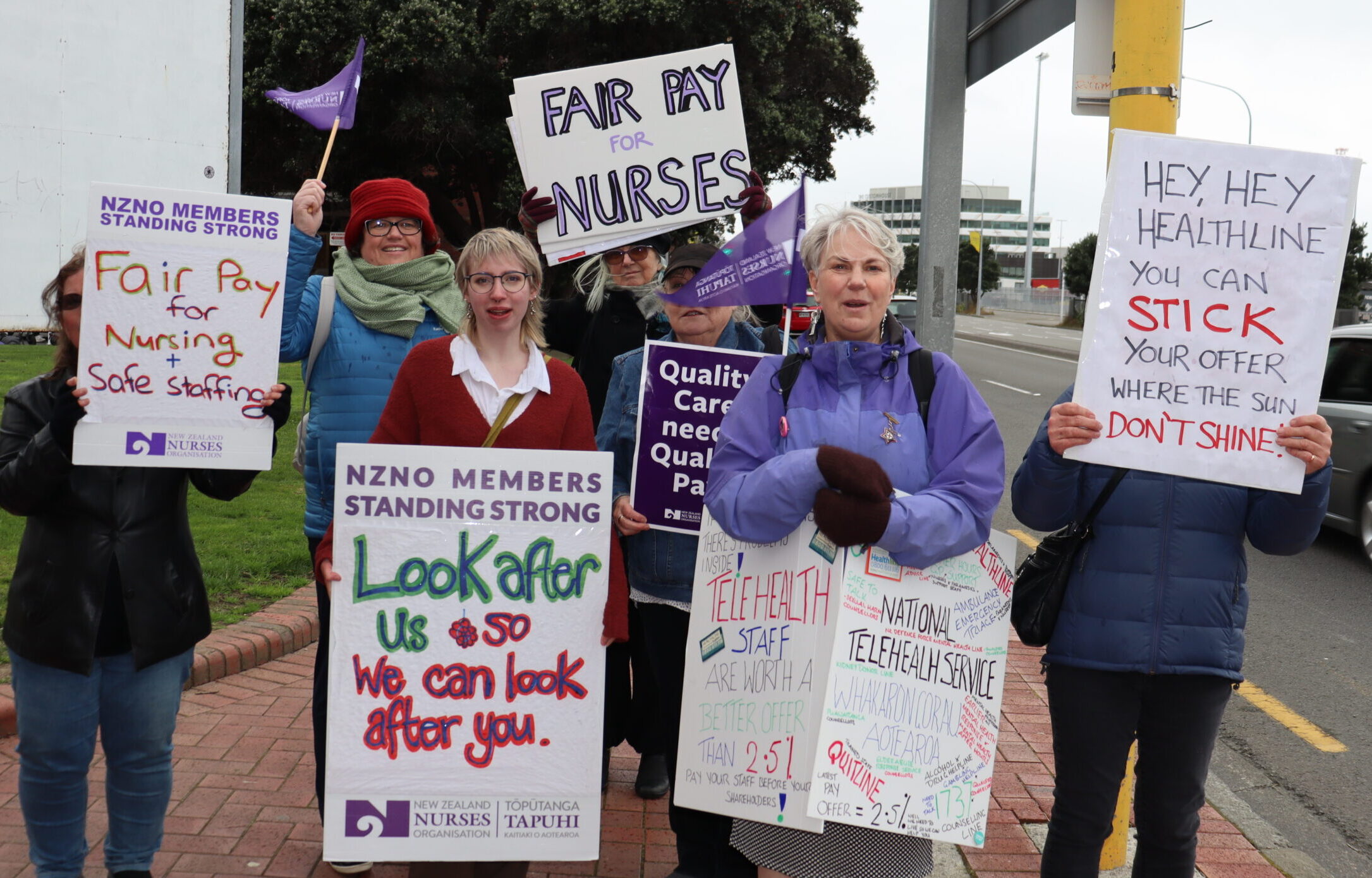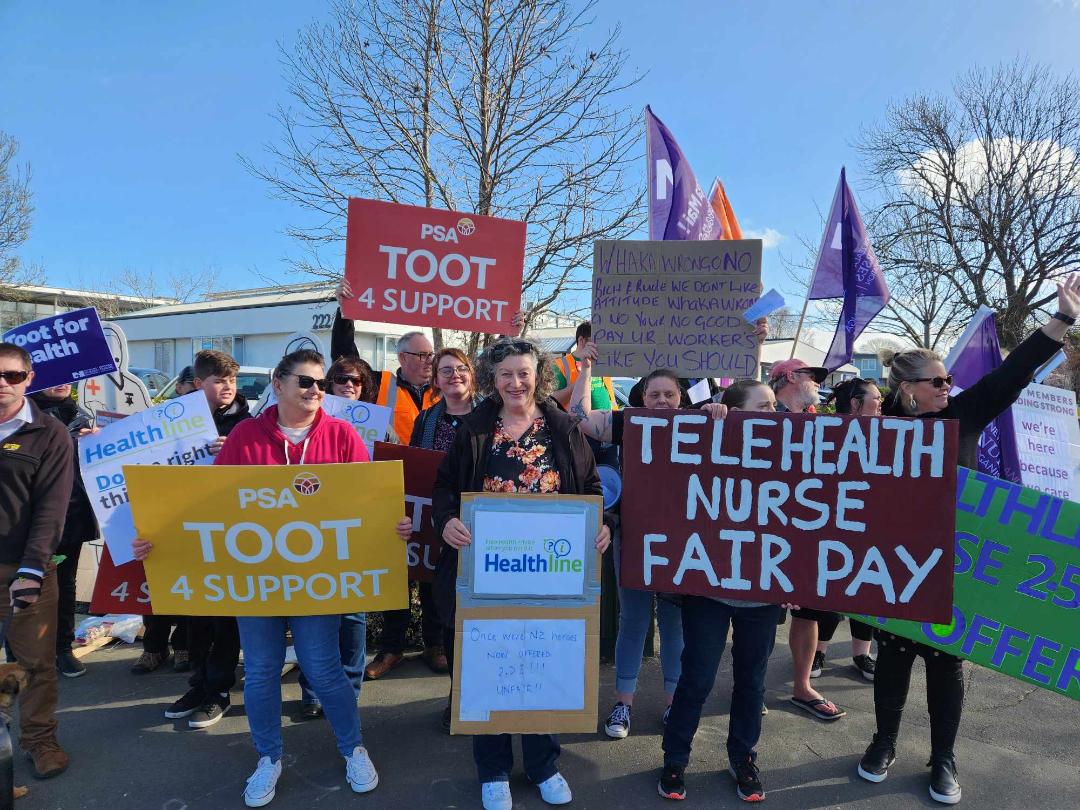“They just don’t seem to value their staff. They appear to value looking good and having all the fancy technology — but all of that is nothing if they don’t have the skilled staff to use it,” NZNO delegate Bruce Tomlinson told Kaitiaki Nursing New Zealand.
Staff at national telehealth service Whakarongorau, including nurses and other health workers like counsellors, went on two 24-hour-strikes in September and October, rejecting a 2.5 per cent pay rise after six months of negotiations.
Members are now deciding whether to go on two more strikes in November (16-18 and 25-27), this time for 48 hours. The strike ballot closed at 3pm on Tuesday, October 24.
Offer ‘falls short’
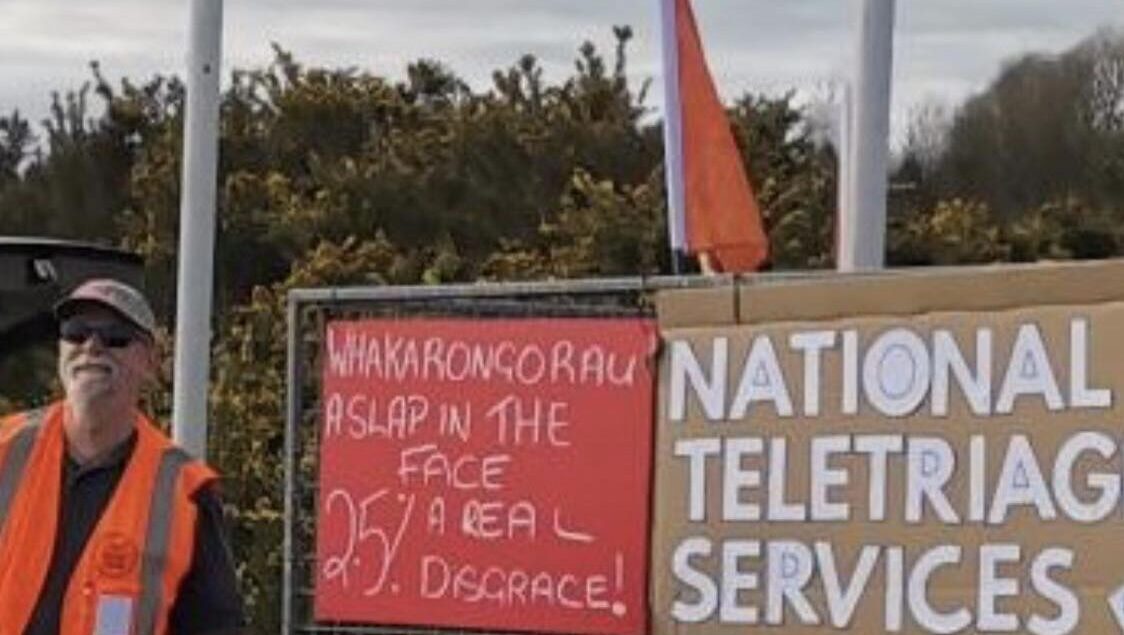
Tomlinson said Whakarongorau’s latest offer of a 3.75 per cent pay rise still fell well short of cost-of-living increases. It also excluded some senior Healthline nurses who had already received a funding boost from the Government’s pay parity fund. This was despite Whakarongorau’s 2021/22 surplus of $7 million, he said.
NZNO is seeking a seven per cent pay rise for all Whakarongorau nurse steps, backdated to March 1 this year.
Many telehealth nurses were on the frontline of crisis situations, such as 111 mental health calls and ambulance triaging services, as well as mental health support services like 1737 Need to Talk?, he said.
Whakarongorau took 2.2 million calls from 1.6 million people over the year to June.
‘Without the frontline staff who take the calls, there is no business, there’s nothing else.’
“We still are the first point of contact for most people who are in distress and we are complementary to GPs, EDs, ambulance and police and mental health crisis teams – those emergency crisis contacts.”
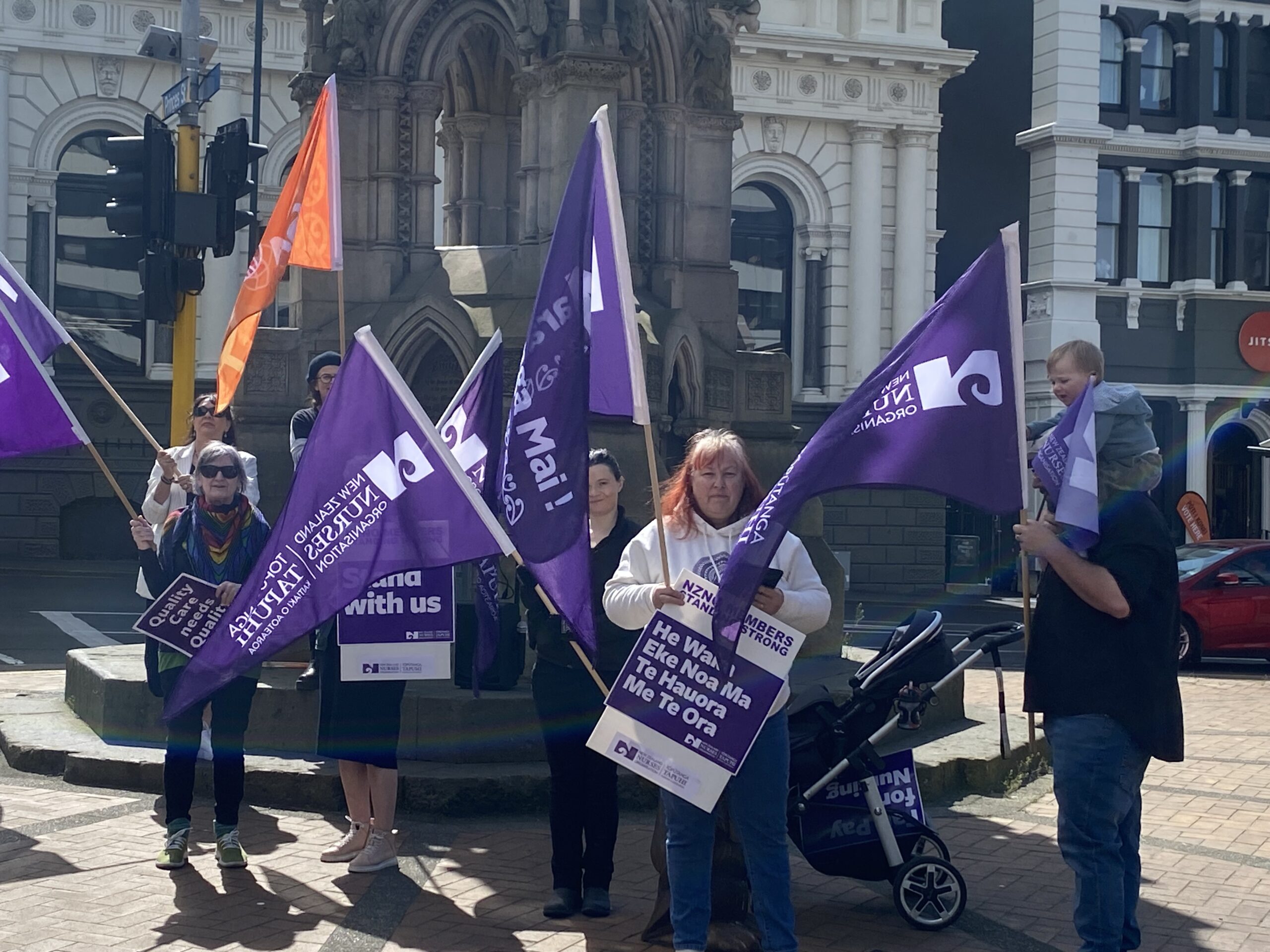
Yet Whakarongorau appeared to want to put more money into technology than people, he said.
Staff ‘most valuable’ asset
“What is the most valuable asset the organisation has? It’s their staff. Without the frontline staff who take the calls, there is no business, there’s nothing else.”
Tomlinson said there had been some gains in the offer — a living wage for the lowest-paid staff as well as the small pay increase — but overall, it still fell well short.
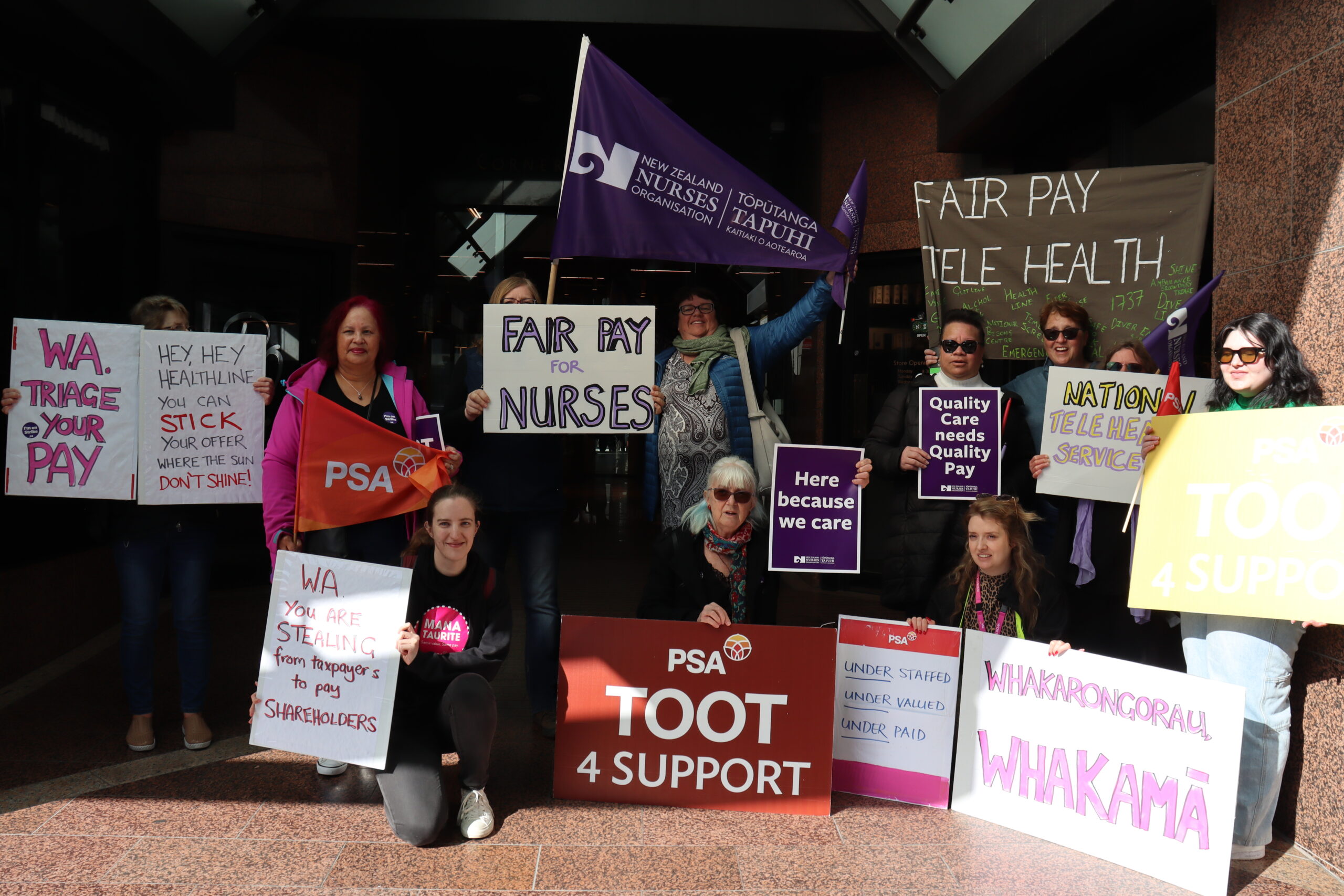
Over the past month, five members from the mental health team alone had quit for better pay elsewhere, he said.
Surpluses ‘no more’
Whakarongorau’s chief employee experience officer Anna Campbell told Kaitiaki while it had made surpluses previously, the organisation made a loss in 2022/23 and was forecasting a loss again this financial year.

“Each year we need to live within our means and currently our expenditure is greater than our income,” she said in a statement.
‘Because Whakarongorau is a social enterprise, that [$7 million] surplus was invested into staff as well as infrastructure and technology to support them and their mahi.’
Due to short-term COVID funding, in 2021/22 Whakarongorau made a surplus of $22 million — however this was divided between the telehealth service and its two owners, primary health-care organisations Pegasus Health and ProCare, who each received just over $7 million.
“Because Whakarongorau is a social enterprise, that [$7 million] surplus was invested into staff as well as infrastructure and technology to support them and their mahi.”
Pegasus Health’s 2022 annual report (p35) describes a “very strong performance” from Whakarongorau for its response during COVID as a financial highlight with “extraordinary volumes” of activity.
Pay disparity for telehealth nurses ‘unfair’
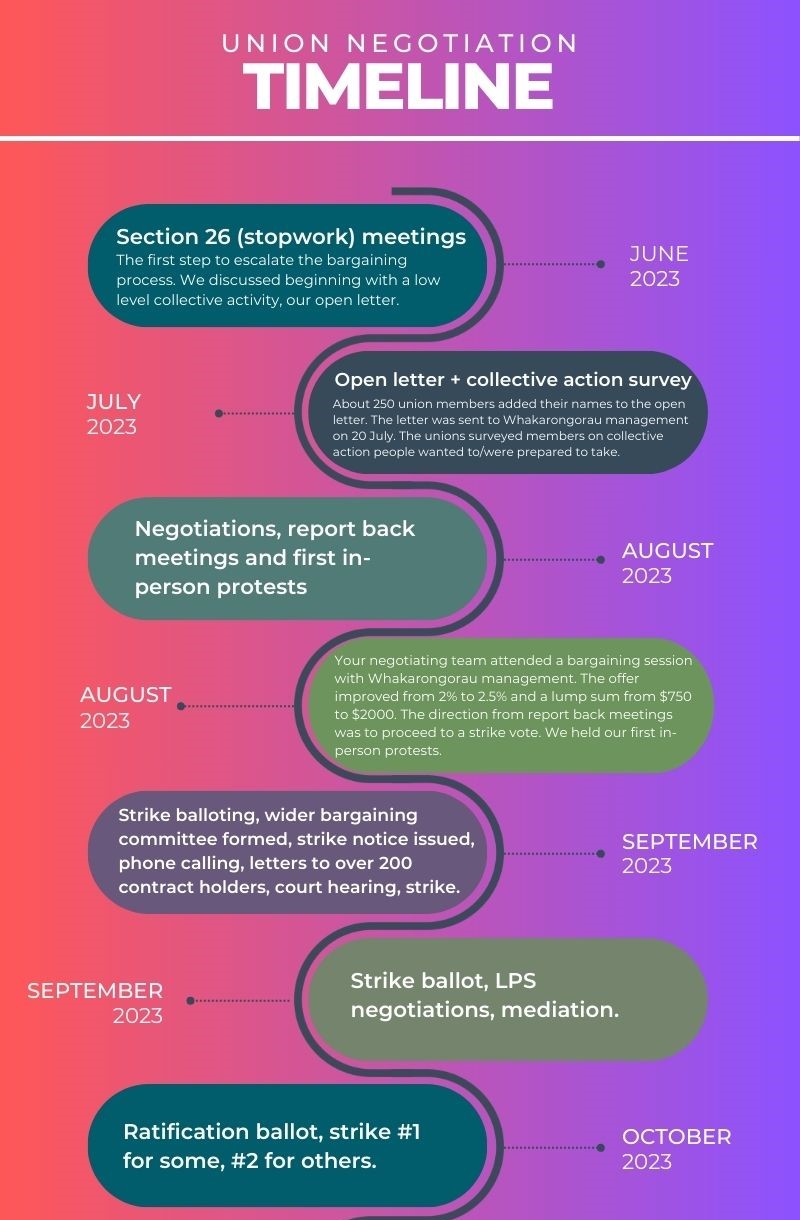
Campbell acknowledged it was unfair to pay telehealth nurses less than Te Whatu Ora staff.
This was why Whakarongorau had joined 11 other community and telehealth organisations to lobby Government for pay parity, she said.
Whakarongorau’s 40-plus telehealth services include Shine domestic abuse helpline, the National Poisons Centre, RecoveRing alcohol and drug support and after-hours support for general practices.
Tomlinson said Whakarongorau also stopped its early response mental health and ambulance triaging nurses from striking on September 8 with a last-minute injunction, claiming they were essential life-preserving services (LPS).
However, LPS had now been agreed between the parties, so those members would be able to participate next time, Tomlinson said.
About 300 staff at Whakarongorau are being represented by their unions, Tōpūtanga Tapuhi Kaitiaki o Aotearoa — NZNO and the Public Service Association (PSA).
